- HOME
- >
- 사업소개
- >
- 한국문학 번역ㆍ연구ㆍ출판지원
한국문학 번역ㆍ연구ㆍ출판지원
-

Fiction소설 | 토끼야, 용궁에 벼슬 가자(前 한국문학 번역지원사업 지원) Dir Hase im Wasserpalast
저자 이청준 ㅣ 역자 Sang-Kyong Lee 이상경,Erika Reichl, Brigitte Schantl, Andreas S
출판사 Germany독일 KAPPA ㅣ 출판일 2000(1999 지원)
토끼야, 용궁에 벼슬 가자 Der Hase im Wasserpalast
이청준 作/ 이상경,Andreas Schirmer,Brigite Schantl,Erika Reihel 共譯 / 독일 KAPPA 刊
이 작품은 판소리 <수궁가>를 바탕으로 한 동화집으로 서로 속고 속이는 자라와 토끼의 이야기를 통해 세상살이와 인간관계의 여러 모습들을 풍자적으로 그렸다. 남도소리를 들으며 자란 이청준의 판소리에 대한 각별한 애정이 빚어낸 것이 ‘판소리 동화’이다. 이청준은 지난 96년 우리 민족의 정신과 삶의 애환이 담긴 판소리 다섯 마당을 풍자와 해학을 곁들여 동화로 엮은 바 있다. 번역자인 이상경 교수는 판소리에 생소한 독일 독자들의 이해를 돕기 위해 원작의 삽화를 그대로 실었을 뿐만 아니라 판소리의 유래 및 변천과정, 수궁가의 내용 및 주제의식 등을 17페이지에 걸쳐 자세히 설명하고 있다.
Der Hase im Wasserpalast(Hey, Rabbit! They Need You in the Palace Under the Sea!)
Yi, Chong-Jun (Author)/ Lee Sang-Kyong, Andreas Schirmer, Brigite Schantl, Erika Reihel (Translators)/ Germany: Kappa, 2000
Based on the pansori, Song of Underwater Palace, this folktale satires the way of life and humans, through a tale of deceit played by a rabbit and a turtle. Having heard namdosori (Southern province style) as a child, Yi Chong-Jun has a special affinity with pansori, and Pansori Nursery Tales is the end result; in 1996, he adapted five pansori acts as witty and satirical tales reflecting joys, sorrows, and spirit of the Korean people. Translator Professor Lee Sang-Kyong assists German readers’ understanding of pansori by inserting 17 pages of original illustrations, annotations to the course of pansori origin and transition, and story and theme of Song of Underwater Palace. -

Fiction소설 | 은마는 오지 않는다 (前 한국문학 번역지원사업 지원) Der silberne Hengst
저자 안정효 ㅣ 역자 Miran Kwak 곽미란, Jürgen Kreft
출판사 Germany독일 Pendragon ㅣ 출판일 2001(1998 지원)
은마는 오지 않는다 Der silberne Hengst
안정효 作/ 곽미란,위르겐 크레프트 共譯/ 독일 Pendragon 刊
안정효는 85년 마흔이 넘은 나이에 등단한 이래 『하얀 전쟁』『미늘』『할리우드 키드의 생애』 등을 발표하며 중견 작가로서의 위치를 확고히 하고 있다. 함부르크 대학의 위르겐 크레프트 교수와 곽미란 씨가 번역한 이 작품은 한국 전쟁의 충격속에서 시대적인 고통과 아픔을 겪은 평범한 사람들의 삶을 사실적으로 다루고 있다. 영어와 덴마크어로도 번역되었고 영화화되기도 하였다. 한국적 이야기를 다루고 있지만 인간의 보편적인 행동 전형들을 보여주고 있어 독일 독자들에게 공감을 얻을 수 있을 것이라는 평이다. 1998년 지원.
Der silberne Hengst(The Silver Horse Doesn't Come)
Ahn Jung-Hyo (Author)/ Kwak Miran, Jürgen Kreft (Translators)/ Germany: Pendragon, 2001
Ahn Jung-Hyo renders, realistically, the lives of ordinary people suffering from the pain and grief amidst the shocking aftermath of the Korea War. Geumsan village, still scarred with the memories of Japanese soldiers from the colonialist rule, suffers again as the Korea War breaks out and it becomes a UN station as result of MacArthur’s Incheon landing operations. The changing village people, despite their efforts to keep their lives as before, are portrayed through the eyes of the children. It has received very warm welcome by the global community: the American Soho press printed it under the title Silver Stallion, and in 1992, Denmark’s Husets Forlag translated and released the text under the title Generalens Genkomst, and the director Jang Gil-Su made a film adaptation, which received the award for best leading actress at the Festival des Films du Monde in Montreal. -

Fiction소설 | 희망(前 한국문학 번역지원사업 지원) Hoffen
저자 양귀자 ㅣ 역자 PARK Kyng-Hee 박경희, Matthias Augustin
출판사 Germany독일 EOS ㅣ 출판일 2003(1998 지원)
희망 Hoffen
양귀자 作/ 마티아스 아우구스틴·박경희 共譯/ 독일 이오스 刊
1991년에 발표된 양귀자의 장편소설 『희망』을 독일어로 번역하여 독일 이오스(EOS)에서 발간한 책이다. 양귀자의 『희망』은 머무를 곳을 찾지 못하는 이들의 숙소인 '나성여관'을 중심으로 등장인물들과 그들 사이의 관계를 통해 모순으로 가득하며 나약하고 허술한 한국 현대사회의 구조를 여실히 보여주고 있는 작품이다. 따라서 이 소설은 독일의 독자들에게 공식적으로는 좀처럼 접하기 힘든 한국의 현대사회에 대한 문제점과 한국의 특수성을 보여줄 것이다. 마티아스 아우구스틴은 석사논문으로 「서울의 달빛 0장 - 작가 김승옥 작품에 있어서의 도시양상」을 연구하는 등 한국 현대문학에 나타난 '도시성'에 대해 지속적으로 관심을 가져온 번역가이다. 1998년 지원.
Hoffen(Hope)
Yang Kwi-Ja (Author)/ Matthias Augustin, Park Kyung-Hee (Translators)/ Germany: EOS, 2003
Through the portrayal of the stray characters and the relationships between them surrounding their lodgings (‘Naseong Inn’), Hope, published in 1991, shows the weak and derelict infrastructure of modern Korean society so full of contradictions. Translator Matthias Augustin, who has had a steady interest in the ‘urbane’ inherent in modern Korean literature, believes the book will show German readers the problems of modern Korean history and the particularity of Korea usually inaccessible in formal data. -

Fiction소설 | 홍어(前 한국문학 번역지원사업 지원) Der Stachelrochen
저자 김주영 ㅣ 역자 Hyunsook Yun-Groβ 윤현숙, Nikolas Groβ
출판사 Germany독일 Peperkorn ㅣ 출판일 2001(1997 지원)
홍어 Der Stachelrochen
김주영 作/ 니콜라스 그로스,윤현숙 共譯/ 독일 Peperkorn 刊
윤현숙·니콜라스 그로스 교수 부부가 번역한 『홍어』는 중진작가 김주영 씨의 제 6회 대산문학상 수상작이다. 지조(志操)와 고립의 분위기를 자아내는 순백의 눈 세계 속에서 산골마을의 사춘기 소년이 그려내는 어머니의 삶을 담고 있다. 역자는 "한국의 조그만 산골 마을과 눈 오는 겨울이라는 한정된 자연이 빚어내는 독특한 분위기 속에서 『홍어』의 '어머니'인 한 여성이 보여주는 삶의 모습은 어떤 문화권을 막론하고 독자들에게 공감을 불러일으킬 수 있을 것으로 본다"고 기대감을 표시했다. 1998년 지원.
Der Stachelrochen(Skate Fish)
Kim Joo-Young (Author)/ HyunSook Youn-Gross, Nikolaus Gross (Translators)/ Germany: Peperkorn, 2001
It took ten years since her last novel, Fishermen Do Not Bend Reeds, for prominent author Kim Joo-Young to write Der Stachelrochen (‘The Skate’), winner of the Sixth Daesan Literary Awards in 1996 and source material adapted for TV MunhakGwan (‘Literature Showcase’). The novel depicts the pure white snow, its constant and isolated atmosphere, and the life of a mother living in the secluded hillside village there, as seen through the eyes of her pubescent son. The mother leads a passive life of waiting for the husband (symbolized by ‘skate’ and ‘stingray kite’) who has abandoned them. She makes preparations, but the surprise turn is that she has been preparing to leave, herself. The story concludes with the return of the father and of normalcy, save for the now absent mother. The picture of a woman living life as ‘mother’ in the unique, restricted atmosphere of the small, Korean hillside village and winter of snow is sufficiently powerful to evoke emotion from readers. -

Children아동문학 | 물에서 나온 새(前 한국문학 번역지원사업 지원) Von Blumen,Vögeln und adneren nutzlosen Dingen
저자 정채봉 ㅣ 역자 Min Sunwoo 선우민
출판사 Germany독일 EOS ㅣ 출판일 2001(1997 지원)
물에서 나온 새Von Blumen, Vögeln und anderen nutzlosen Dingen
정채봉 作/ 선우민 譯/ 독일 이오스 刊
독일에서 출판된 첫 번째 한국 동화집인 이 책은 올해 1월 타계한 아동문학가 정채봉의 동화집이다. 작가의 눈부신 문체와 아름다운 영혼이 섬세하게 살아 있는 사색 동화집으로 삶을 향한 따스한 시선이 담겨 있다. 독일 본대학의 선우민 씨가 번역하였고 직접 삽화도 그렸다. 선우민 씨는 출판이 늦어져 작가에게 번역서를 못 보여드린 것이 늘 죄송스럽고 마음에 걸린다고 했다. 1997년 지원
Von Blumen, Vögeln und anderen nutzlosen Dingen(The Bird Who Came Out of the Water)
Chong Chaebong (Author)/ Min Sun-Woo, Kim Nam-Ok (Translators)/ Germany: EOS, 2001
Von Blumen, Vogeln und Anderen Nutzlosen Dingen marks the foremost book of Korean original nursery tales translated into not just German but into any Western language. Nineteen stories including the title piece The Bird That Came From Water, Doggie Waltz, Violets and A Chorus of Angels make up this meditative collection. The author’s sparkling sentences and his beautiful soul within exhale his warm outlook on life to reach international audiences. Universität Bonn’s Min Sun-Woo translated, and illustrated, the pages: “I took every care to translate, intact, the genuine feeling present in the original text,” Min Sun-Woo said. The only thing lacking appears to be the author’s approval of his welcome in the West as it was published posthumously. -

Fiction소설 | 어느 별의 지옥 (前 한국문학 번역지원사업 지원) Die Frau im Wolkenschloss
저자 김혜순 ㅣ 역자 Kim Young-Ok 김영옥, Han Jongwha 한종화
출판사 Germany독일 Peperkorn ㅣ 출판일 2001(1997 지원)
Die Frau im Wolkenschloss (A Woman in Cloud Castle)
Kim Hye-Soon (Author)/ Kim Young-Ok, Han Jong-Wha (Translators)/ Germany: Pendragon, 2001
Pendragon, the German publisher of Korean Literature series, has printed this collection of poetry by the much-deserved poet Kim Hye-Soon, vanguard of language externalization. Drawn from six books including the Juvenelia From Another Star, Which Star Which Hell, My Upanisad Seoul, The Poor Love Machine, 60 pieces are nominated. Hers is an inventive technique where new vigor rises from breathing passion into lost memories. Well-received in Germany, Kim Hye-Soon has recited poetry in Berlin, Hamburg, and Leipzig in 2000. -

Drama희곡 | 영월행 일기(前 한국문학 번역지원사업 지원) Es ist weit von Seoul nach Yongwol
저자 이강백 ㅣ 역자 Sylbia Bräsel, Kim Miy-He 김미혜
출판사 Germany독일 Peperkorn ㅣ 출판일 1999(1997 지원)
영월행 일기 Es ist weit von Seoul nach Yongwol
이강백 作 / 김미혜,Sylvia Bräsel 共譯 / 독일 Peperkorn 刊
「영월행 일기」「봄날」「파수꾼」「결혼」등 한국의 대표적 희곡작가인 이강백의 희곡 4편이 수록돼 있다. 단종애사를 소재로 한「영월행 일기」는 역사의 구조가 쉽게 바뀌지 않는다는 관점에서 단종 시대와 현실을 오버랩 시키고 있으며 뛰어난 상상력으로 현실과 과거를 교차시키면서 정신적 풍요의 가치를 제시하고 있는 작품이다.「파수꾼」은 잘 꾸며진 이야기로 위협과 조종이라는 권력의 메커니즘을 가시화하기 위해 두려움의 놀이를 연출하여 권력에 대한 믿음, 인간 이성의 미성숙과 근절에 대한 풍자를 하고 있는 작품이다. 「결혼」은 결혼 사기꾼의 예를 통해 물질적 관점에서만 모든 것을 보는 사회를 고발하고, 「봄날」은 동아시아적 전통에 묶여 있는 것 같지만 스스로 완성되는 과정에 대한 반응을 옛 문화에 근거한 문화적 가치와 사고(思考) 구조를 그린 작품이다.
Es Ist Weit von Seoul nach Yongwol.(Diary of the Journey to Yongwol)
Lee Kang-Baek (Author)/ Sylbia Bräsel, Kim Miy-He (Translators)/ Germany: Peperkorn, 1999
The four plays, Diary of a Journey to Yongwol, Spring Day, The Lookout, and Getting Married, by the popular playwrite Lee Kang-Baek gathers together to make this fine volume. Diary of a Journey to Yongwol uses the sad history of King Danjong as material in overlapping current reality and the Danjong era to emphasize the point that historical structure does not easily change; it presents the value of spiritual wealth by creatively intersecting past and reality. The Lookout performs a fear play in order to amplify the threat/control power mechanism: it satires the religiosity of power, the immaturity of man’s reason and its final eradication. Getting Married exposes, through the story of a marriage fraud, a society absorbed with materialism. Spring Day sketches, although seemingly bound by East-Asian tradition, the mental framework and cultural value based on cultures of the past in response to the self-completion process. -

Fiction소설 | 김 약국의 딸들(前 한국문학 번역지원사업 지원) Die Töchter des Apothekers Kim
저자 박경리 ㅣ 역자 Youn-Gross Hyunsook 윤현숙, Nikolaus Gross
출판사 Germany독일 Pendragon ㅣ 출판일 1999(1996 지원)
김약국의 딸들 Die Töchter des Apothekers Kim
박경리 作 / Nikolaus GROSS,윤현숙 共譯 / 독일 PENDRAGON 刊
이 소설은 독일어로 번역된 박경리씨의 첫 번째 작품이다. 1962년에 발표된 『김약국의 딸들』은 1860~1920년을 시간적 배경으로, 남해안의 작은 항구도시인 통영을 공간적 배경으로 하여 한약방을 운영하는 김성수와 그의 아내 한실댁, 그리고 다섯 딸들의 운명을 다루고 있다. 이 작품은 인물들의 성격과 열정에 대한 매혹적인 묘사를 통해 한국의 가족구조를 비롯한 사회적 삶의 모습을 잘 보여주고 있다. 이 작품에 나타난 한국사회의 인간관계 및 문화적 특성들은 작품의 시간적 배경이 1900년대 초반을 전후한 시기임에도 불구하고 오늘의 그것들과 깊은 연속성을 가지고 있다. 대화의 형식, 식생활 습관, 주거형태, 권위․질서에 대한 사고방식, 결혼식, 장례식, 제사, 무속신앙 등의 한국의 일반적인 문화적 특성들은 다른 문화권에 속한 독자들에게 이국적 정감을 불러일으킬 뿐만 아니라 정열, 사랑, 증오, 정절, 배신, 기쁨, 고통, 질병, 사망 등과 같이 어느 사회에서나 공통적으로 볼 수 있는 인간의 감정과 운명을 대변해 주는 독특한 등장인물과 조화를 이루면서 긴장감 넘치는 이야기를 엮어내고 있다.
Die Töchter des Apothekers Kim.(The Daughters of Pharmacist Kim)
Park Kyong-Ni (Author)/ Hyunsook Youn-Gross, Nikolaus Gross (Translators)/ Germany: Pendragon, 1999
First ever Park Kyung-Ni novel to be translated into German, The Curse of Kim’s Daughters (1962) unfolds through the period between 1860 and 1920, over the fate of the herb apothecary Kim Seong-Su, his wife Han-sil and their five daughters living in the small port city Tongyoung by the South Sea. The author paints an enchanting picture of character, ardor, and eventually, the Korean and social family. Despite its timeframe of the early 1900’s, there exists continuity between past and present culture and human relations in Korea. Korean attributes such as conversation format, eating habits, living quarters, weddings, funerals, sacrificial rites, shamanism and perception of order and authority bridges across to foreign readers, weaving the unique allegory of universal humanity of love, passion, hate, devotion, betrayal, joy, pain, illness and death into a tense symphony. -

Fiction소설 | 내 영혼의 우물(前 한국문학 번역지원사업 지원) Der Brunnen meiner Seel
저자 최인석 ㅣ 역자 Kim Sun-Hi 김선희, Edeltrud Kim
출판사 Germany독일 Middelhauve ㅣ 출판일 2001(1996 지원)
내 영혼의 우물 Der Brunnen meiner Seele
최인석 作 / 김선희,김 에델트루트 共譯 / 독일 Middelhauve 刊
『내 영혼의 우물』은 인간의 실존 문제를 명쾌하게 간파하여 자신을 되돌아보게 하는 최인석의 소설집으로 제 3회 대산문학상 수상작이기도 하다. 이 책에는 표제작인 「내 영혼의 우물」을 비롯하여 「새, 떨어지다」「세계의 바닷가」등 세 작품이 실려있다. 번역자인 김선희씨는 “이 작품은 유토피아를 동경하는 인간의 실존 문제를 작가 특유의 친숙한 문체에 아이러니와 우연성을 가미시켜 그려내고 있다”면서 “한국적 분위기가 짙게 담겨져 있기는 하나 독일 독자들이 공감대를 형성할 수 있을 것”이라고 번역소감을 밝혔다. 미델하우베 출판사는 50여년의 전통을 가진 뮌헨의 대표적 출판사이다. 붉은 바탕위에 검은 눈을 넣은 표지가 인상적이다.
Der Brunnen meiner Seele(The Well of My Soul)
Choi In-Suk (Author)/ Kim Sun-Hi, Kim Edeltrud (Translators)/ Germany: Middelhauve, 2000
The Third Daesan Literary Award novel, Der Brunnen Meiner Seele (‘My Soul’s Well’) penetrates ontological questions and brings about self-reflection in three fictions, My Soul’s Well, Ein Vogel, Der Faellt, and Am Strand der Welt. Translator Kim Sun-Hi describes it as a book of irony and contingency written in the author’s familiar phrasing of the existential human wish for Utopia. True, the Korean touches are strong, but German readers will not find sympathy difficult. Middelhauve has published for over 50 years and continues to be a distinguished press in Muenchen. The book features an impressive cover-art of a black eye over a red background. -

Fiction소설 | 외딴 방(前 한국문학 번역지원사업 지원) Das Zimmer im Abseits
저자 신경숙 ㅣ 역자 Kim Youn-Ock 김윤옥
출판사 Germany독일 Pendragon ㅣ 출판일 2001(1996 지원)
외딴방 Das Zimmer im Abseits
신경숙 作 / 김륜옥 譯 / 독일 Pendragon 刊
『외딴방』은 열악한 환경 속에서 문학의 꿈을 키웠던 작가의 사랑과 아픔을 담은 자전적 소설이다. 열여섯에서 스무살까지를 배경으로 한 영혼의 외롭고 진지한 행로를 따뜻하게 포용하고 있는 이 소설은 감동적인 노동소설이면서 동시에 뛰어난 성장소설이다. 고향을 잃고 대도시에 나와서 정직하고 성실하게 살아가면서도 고통을 받던 얼굴 없는 사람들의 삶을 또렷하고 형상화하고 있을 뿐만 아니라, 노동자가 아닌 예술가로서 그것을 어떻게 표현해내야 하는가를 고뇌하는 소설이라는 평을 받았다. ‘시적인 소설가’라고 불리기도 하는 작가 특유의 감성적이고 주관적인 문체가 돋보인다.
Das Zimmer im Abseits(House of Isolation)
Sin Kyong-Suk (Author)/ Kim Youn-Ock, Ragni Maria Gshwend (Translator)/ Germany: Pendragon, 2001
The biographic novel Das Zimmer im Abseits (‘The Solitary Room’) movingly recaptures the love and suffering of the author who dreams of literature even under poor conditions. This book, both a touching labor book and a brilliant bildungsroman, warmly embraces the lonely and serious path of a life in the years between 16 and 20. Summoning faces and lives of those who, on losing their homes, move to the city and suffer even while living honest lives, The Solitary Room, agonizes over how to best express all the complex elements, not as a worker, but as an artist. The sensitive and subjective style unique to the writer sometimes referred to as the ‘poetic novelist’ emerges glowingly in this particular piece. -
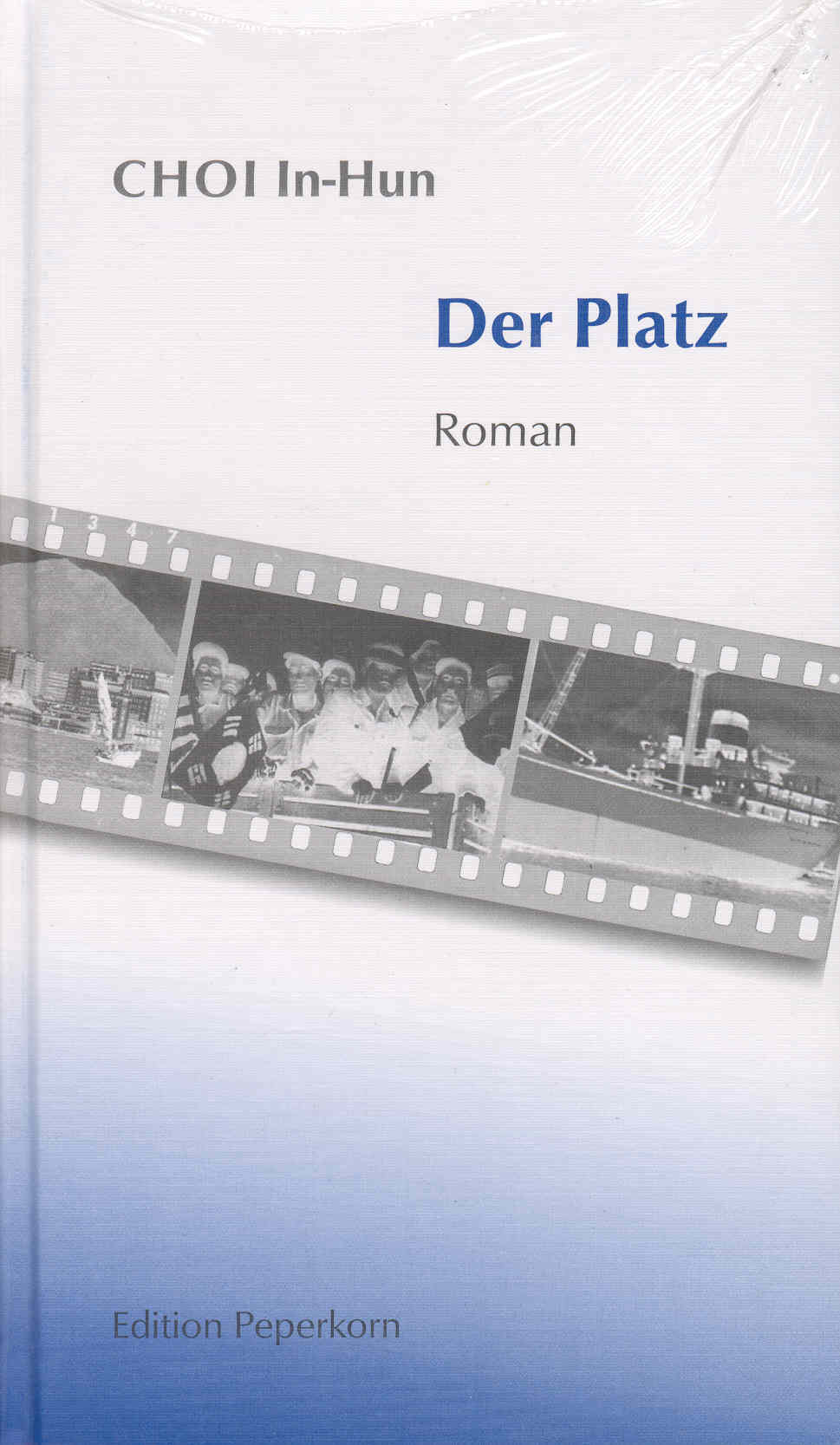
Fiction소설 | 광장(前 한국문학 번역지원사업 지원) Der Platz
저자 최인훈 ㅣ 역자 김희열,Ralf Deutsch랄프 도이치
출판사 Germany독일 페퍼코른(Peperkorn) ㅣ 출판일 2002(1995 지원)
광장 Der Platz
최인훈 作 / 김희열,Ralf Deutsch 共譯 / 독일 Peperkorn 刊
『광장』은 남북간 이데올로기 문제를 본격적으로 다룬 최인훈의 대표작으로 한국 대학생들에게 있어 필독서로 자리잡고 있다. 1960년 10월 <새벽> 지에 발표된 『광장』은 주인공 이명준의 삶을 통해 분단과 이념의 문제를 정면으로 그리며 남북 모두를 비판적으로 다룬 최초의 소설이다. 스스로도 『광장』을 대표작으로 꼽고 있는 최인훈은 이후 다섯 차례나 개작하였고 그 때마다 이 작품은 최인훈 문학의 ‘표준점’ 역할을 하였다. 번역자인 김희열 교수는 “이 작품에 나타난 분단과 이데올로기 문제는 독일도 역사적 체험을 공유한 바가 있어 독일어권 독자들의 공감대를 얻을 수 있다고 확신하기 때문에 이 작품을 번역하게 되었다”고 밝혔다.
Der Platz(The Plaza)
Choi In-Hun (Author)/ Kim Hi-Youl, Ralf Deutsch. (Translators)/ Germany: 독일 Peperkorn, 2002
Choi In-Hun’s masterpiece Der Platz (‘The Square’) fast emerges as required reading for Korean university students due to its treatment of the North-South question of ideology in earnest. Published in the journal ‘Saebyuk’ (‘Dawn’) on October 1960, The Square follows the life of the protagonist Yi Myung-Jun, and is the first ever novel to attack, so forthright, both North and South for the partition and difference of ideology. Choi himself calls The Square his best work, adapting it five times, and on each occasion, this has been the measure of standard in Choi’s opus. Translator Kim Hi-Youl revealed he chose this text in faith that German readers, as they too have had the experience, will sympathize with the partition and ideological conflict appearing in the novel. -

Poetry시 | 조국의 별(前 한국문학 번역지원사업 지원) Die Sterne über dem Land der Väter
저자 고은 ㅣ 역자 Woon-Jung Chei 채운정, Siegfried Schaarschmidt
출판사 Germany독일 Suhrkamp ㅣ 출판일 1996(1995 지원)
조국의 별Die Sterne ueber dem Land der Vaeter
고은 作/ 채운정,지그프리트 샤슈미트 譯/ 독일 Suhrkamp 刊
지난 1996년 주어캄프에서 초판이 발행되고 올해 ‘주어캄프 세계시인총서: 세상의 바람 Poesie in der Bibliothek Suhrkamp: Wind der Welt’의 하나로 재발간되어 주목받는 책이다. ‘세계시인총서’는 20세기 저명한 작가들의 1천3백여 작품을 수록한 ‘주어캄프총서’ 중에서 주요 시인의 시집만 따로 소개하는 시리즈로 지난 7월 고은 시인을 포함한 10인의 시집 10권이 첫 선을 보였다. 이번에 이 총서를 통해 소개된 10명의 시인 중에는 사뮈엘 베케트, 요셉 브로드스키, 파울 첼란, 두어스 그륀바인, 비스와바 쉼보르스카 등이 포함되어 있다. 1995년 지원.
Die Sterne Über dem Land der Väter(The Star of Our Land)
Ko Un (Author)/ Chei Woon-Jeong, Siegfried Schaarschmidt (Translators)/ Germany: Suhrkamp Verlag, 1996
Die Sterne… printed in 1984 Korea, exemplifies Ko Un’s nonpareil artistic maturity. In this compendium of poetry by the immense, prolific, forest-like world of Ko-Un, the 1980’s emerges via strong artistic intention while inner beauty blooms. Sixty three buds, in fact, make up this particular forest of 107 pages: works include Deul-Bap, The Bellflower, March, From Heaven and Earth, footnoted and expounded with a forward introduction to the poet himself. It is the second Korean book of poems printed by the famed German publisher, Suhrkamp Verlag, since Kim Ji-Ha’s Yellow Earth in 1984. -

Fiction소설 | 바람과 강(前 한국문학 번역지원사업 지원) Wind und Wasser
저자 김원일 ㅣ 역자 Ahn Sohyun 안소현, Heidi Kang 하이디 강
출판사 Germany독일 Pendragon ㅣ 출판일 1998(1995 지원)
바람과 강 Wind und Wasser
김원일 作 / 안소현,Heidi Kang 共譯 / 독일 Pendragon 刊
이 소설은 독일의 펜드라곤 출판사에서 새로이 시작한 '한국작가선시리즈' 첫 번째 작품으로 소개되었다. 왕성한 활동을 하고 있는 중진작가 김원일은 한국전쟁과 분단에 관한 자신의 체험을 토대로 이러한 체험에서 생겨나는 인간적인 비극을 자주 다루고 있는데 『바람과 강』은 이러한 그의 특성을 잘 보여주는 소설이다. 이 소설은 청년시절 높은 이상을 가지고 만주에서 일본의 압제에 항거하기 위해 희생적으로 투쟁했지만 결국 실패한 국외자(outsider)의 삶을 영위하게 되는 주인공 이인태의 삶의 역정을 그린 작품이다.
Wind und Wasser(Wind and River) Kim Won-Il (Author)/ Ahn Sohyun, Heidi Kang (Translators)/ Germany: Pendragon, 1998 Released by the German Pendragon, Wind und Wasser opens an additional chapter in Korean-German translations as the premier volume in the newly begun Korean Writers Collection Series. The assiduous Kim Won-Il often depicts human tragedy ensuing from ordeals of war, and this book is, incidentally, based on his Korean War and partitioning experience. The story revolves around the vexation of protagonist Yi In-tae, who, as a young idealist, hurls himself into the resistance fight against Japanese oppression in manchuria, only to fail and live an ex-patriot life. -
Poetry시 | 바람 가득한 날(前 한국문학 번역지원사업 지원) Ein Tag voller Wind
저자 고은 ㅣ 역자 임종대,Jürgen Abel위르겐 아벨
출판사 Germany독어 펜드라곤(Pendragon) ㅣ 출판일 2002(1994 지원)
바람 가득한 날 Ein Tag voller Wind
고은 作/ 임종대,위르겐 아벨 共譯/ 독일 펜드라곤 刊
서울대 독문과 임종대 교수가 번역하고 함부르크에 거주하는 독일 시인 유르겐 아벨(Jürgen Abel) 씨가 윤문한 『Ein Tag voller Wind』에는 『내일의 노래』에서 53편, 『이렇게 소라껍질 을 찾네』에서 15편 등 총 68편의 시가 실려 있다. 고은 시집이 독일어로 번역되어 단행본으로 출판된 것은 지난 96년 주어캄프에서 발간된 『Die Sterne ber Dem Land Der Väter 조국의 별』에 이어 두 번째다. 제 1회 대산문학상 수상작인 『내일의 노래』는 30여년을 시작(詩作)에 바친 고은 시인의 사람과 역사에 대한 탐구와 고뇌의 흔적이 담긴 시집으로 존재론적인 사유와 합일, 사회 참여 등 삶의 모든 측면을 문학적으로 형상화했다는 평을 받았으며 『이렇게 소라껍질을 찾네』는 고은의 시 중 사랑을 테마로 한 100편을 골라서 정리한 것이다. 1994년 지원.
Ein Tag voller Wind(Sang of Tommorow)
Ko Un (Author)/ Lim Jong-Dae, Jürgen Abel, Franz Weninger (Translators)/ Germany: Pendragon, 2002
Ein Tag Voller Wind knits 53 poems from Songs of Tomorrow and 15 from Finding Seashells Thus, making a sum of 68 Ko Un works. Award winner (First Daesan Literary Awards) Songs of Tomorrow chronicles 30 years versification of history and mankind, and attests to his research and hardship. Encompassing all kinds of poetry genres ranging from the simple traditional to the modern experimental, long and short, epic and lyric, narrative and not, his works deal with ontology, unification, and social participation—his is a literary personification of all things. Finding Seashells Thus recollects 100 Ko Un poems under the theme ‘love’: his love songs of Buddhist mercy go beyond its boundaries to attain an eternal worth. -
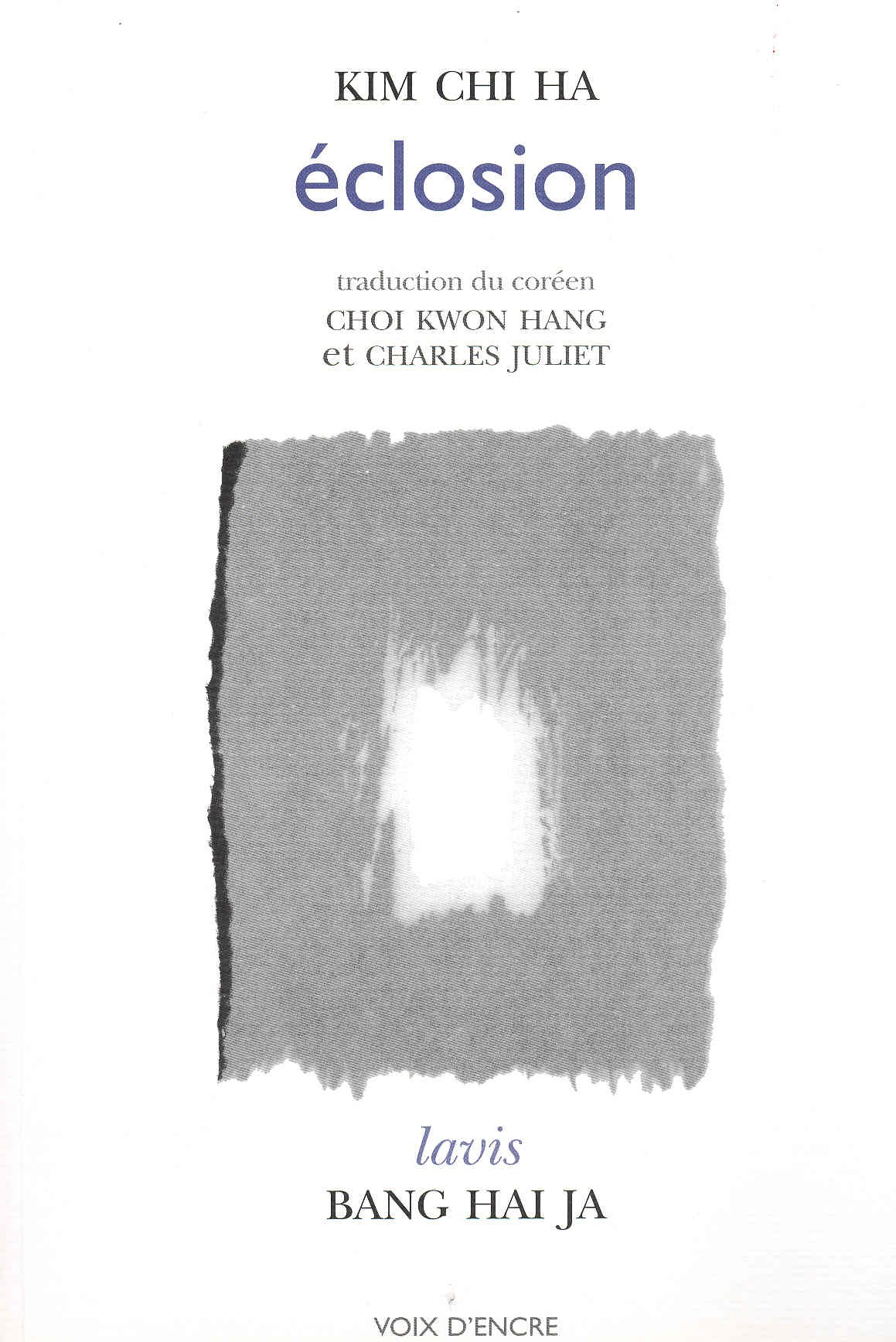
Fiction소설 | 화개(前 한국문학 번역지원사업 지원) Éclosion
저자 김지하 ㅣ 역자 최권행,Charles Juliet샤를 줄리에
출판사 France프랑스 Voix d'Encre ㅣ 출판일 2006(2004 지원)
花開 Eclosion
김지하 作/ 최권행,샤를 줄리에 共譯/ 프랑스 Voix d'Encre 刊
2002년 대산문학상 수상작인 『花開』는 한국 민주화 운동의 상징적 존재인 김지하 시인이 민주화 운동 후유의 시대의 울적과 긍정을 직절적이고 열정적으로, 그러나 단순화하지 않고 역설과 모순으로 표현한 시집이다. 또한 1990년대 이후 민주화 운동에서 환경운동과 생명사상으로 관심사가 이동한 시인의 변모를 잘 드러내고 있기도 하다. 특히 이번 번역서는 시편마다 재불 수묵화가로 명성이 높은 방혜자 씨의 그림을 곁들여 시화집(詩畵集) 형태로 출간된 점이 눈에 띈다. Voix d'Encre는 프랑스의 시집 전문 출판사이다. 2004년 지원.
Blooming Flowers
Kim Ji-ha(Author) / Choi Kwon-Haeng, Charles Juliet(Translators)/ France: Voix d’Encre
Readers typically have a pretty good idea of what work by Ji-ha Kim is going to be like. And his work isn’t far from what is expected, certainly not from poetry coming from the conflict-ridden eighties, nor for poems from a time rich in lyricism. But at the same time, this collection is sufficient to puzzle such readers. Without a hint of stubbornness or compulsion, the poems here simply gently convey the quiet, but deeply resonating echoes of life, existence, and the universe. It was a 10th Daesan Literary Awrds Winner. -
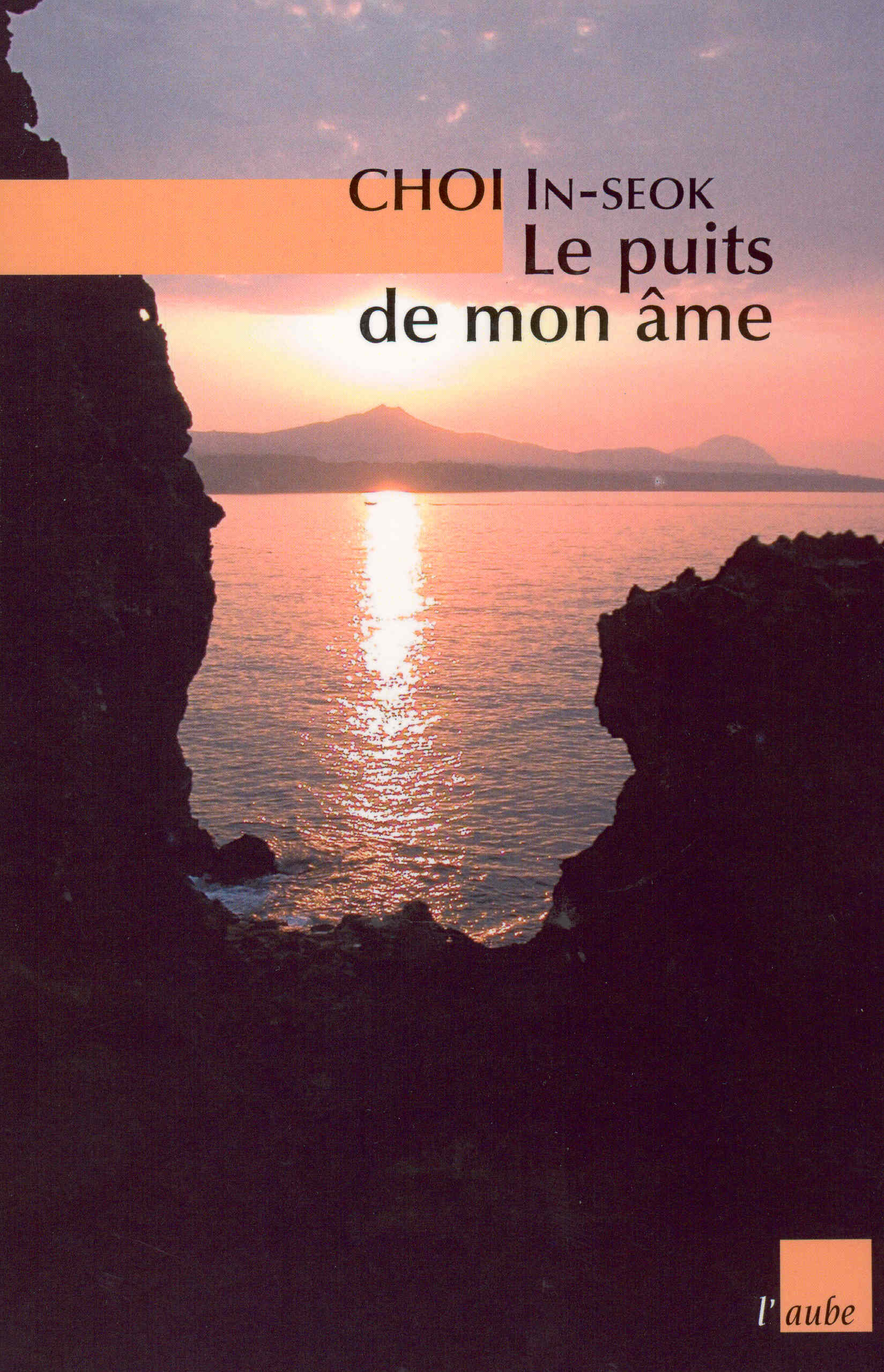
Fiction소설 | 내 영혼의 우물(前 한국문학 번역지원사업 지원) Le puits de mon âme
저자 최인석 ㅣ 역자 고광단,Eric Bidet에릭 비데
출판사 Franve프랑스 로브(L'Aube) ㅣ 출판일 2006 (2001 지원)
내 영혼의 우물 Le puits de mon a^me
최인석 作/고광단, 에릭 비데 共譯/ 프랑스 L'Aube 刊
거짓된 낙관보다는 진실된 비관을 존중하며 한국 사회의 모순을 아프게 직시하는 작품을 꾸준히 발표해 온 중견 소설가 최인석의 대표작이 불어로 출간되었다. 『내 영혼의 우물』은 혼탁한 세상과의 갈등, 유토피아에 대한 인간의 본능적 욕구와 좌절을 삶의 현장과 밀착된 다양한 소재와 감칠맛 나는 문체로 그려낸 문제작으로 1995년 대산문학상을 수상해 43살의 신진작가이던 최인석의 이름을 널리 알리게 한 대표작이다. 당시 신앙, 자유, 사랑 등 드물지 않은 소재를 다루면서도 이야기를 인간실존의 탐색으로 승화시켜 이끌어 가고 있다는 평을 받았던 이 소설집에는 총 6편의 소설이 수록돼 있는데 본 번역서에는 이중 「세상의 바닷가 Le rivage du monde」 「세상의 다리 밑 Sous le pont du monde」 「내 영혼의 우물 Le puits de mon a^me」 등 3편의 중단편이 번역돼 있다.
puits de mon âme (The Well of My Soul)
Choi In-Suk(Author)/ Ko Kwang-Dan, Eric Bidet (Translators)/France:Les editions de l’aube,2006
Comprised of six short stories, this is a work which uses the surreal, violent daily life of a prison to illustrate the desires and frustrations of humanity. Choi In-seok is a writer who prefers honest criticism to false optimism. With his rich, flavorful style, Choi In-Suk uses a variety of subjects taken from real life to express the innate human desires and frustrations as we search for a utopia while dreaming of flying freely from the conflicts of this corrupt world. Winner of a Third Daesan Literary Awards, it has also been translated into German, where it is being well received. -
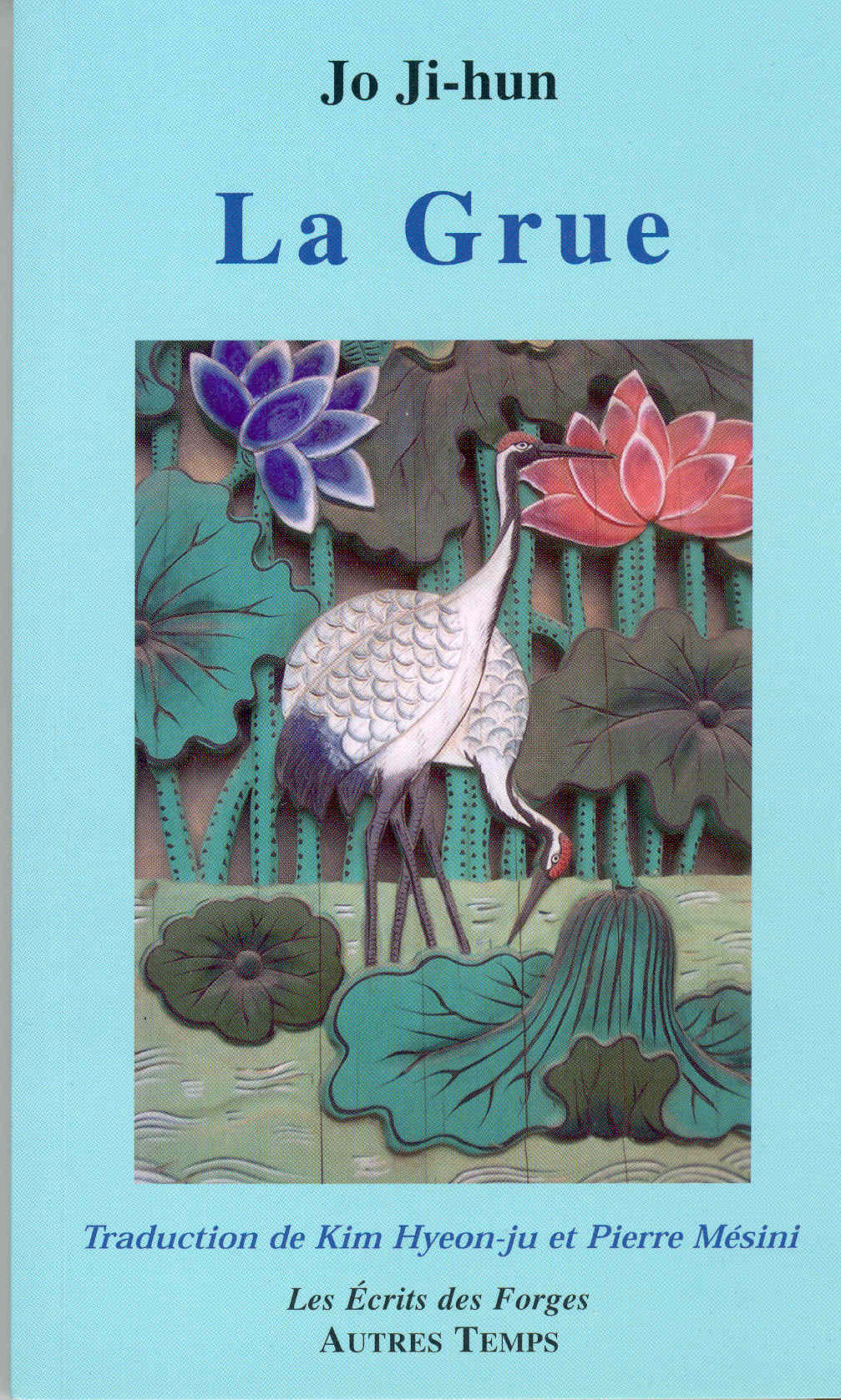
Poetry시 | 학 La Grue(前 한국문학 번역지원사업 지원)
저자 조지훈 ㅣ 역자 김현주,Pierre Mésini피에르 이브 메지니
출판사 France프랑스 오트르 탕(Autres Temps) ㅣ 출판일 2003(2001/03 지원)
학 La Grue
조지훈 作/ 김현주,피에르 메지니 共譯/ 프랑스 오트르탕 刊
지난 96년 소개된 박목월의 『Le Passant 나그네』에 이어 오트르탕(Autres Temps) 출판사에서 소개되는 두 번째 청록파의 시집이다. 조지훈 시집 『청록집』, 『풀잎 단장』, 『조지훈 시선』, 『역사 앞에서』, 『여운』 등에서 번역자들이 110여편을 선정하여 번역했다. 특히, 책의 머리에는 조지훈의 개인사를 당시 한국사 비교 수록하여 한눈에 그의 일대기를 살필 수 있도록 세심한 배려를 하였다. 박목월, 박두진과 함께 '청록파 시인'으로 일컬어지며, 이들의 공통적 주제였던 '자연'에 대한 추구와 함께 관조적이며 고전적인 품격의 시를 독자적으로 형성한 조지훈의 시는 자연을 바탕으로 인간의 염원과 가치를 성취하고자 하는 공통된 주제로 한국시의 새로운 면모를 선보일 것으로 기대된다. 페이퍼백 178페이지. 2001년 지원.
La Grue
Jo Ji-Hun (Author)/ Kim Hyeon-Ju, Pierre Mésini. (Translators)/ France: Autres Temps, 2003
His subject matter, the classical scenery of the 1040’s, gained attention when Jo Ji-Hun chose it as his medium for elegant song of national sentiment. Dubbed Cheongnokpa (a circle of three nature poets who came to light as a result of recommendation from the journal, ‘Sentence’) since the publication of ‘Cheongnokjip (a collection of the trio’s works named after Park Mok-Wol’s poem Cheongnoru’)’ with Park Du-Jin and Park Mok-Wol, Jo Ji-Hun has since been central in modern Korean poetry. This edition houses 110 odd poems chosen from his volumes ‘Cheongnokjip,’ ‘Pullip Danjang,’ ‘Collected Poetry of Jo Ji-Hun,’ ‘At the Foot of History’ and ‘Lingering.’ Special care went into the forward where the poet’s personal history runs alongside national history, making it an excellent guide to his biography. With this second Cheonnokpa volume of poetry to come from the French publishing house Le Grue with the first, Park Mok-Wol’s Le Passant, in 1996, Korean poetry will show a new face under the constant theme of human wish and fulfillment where nature is background. -
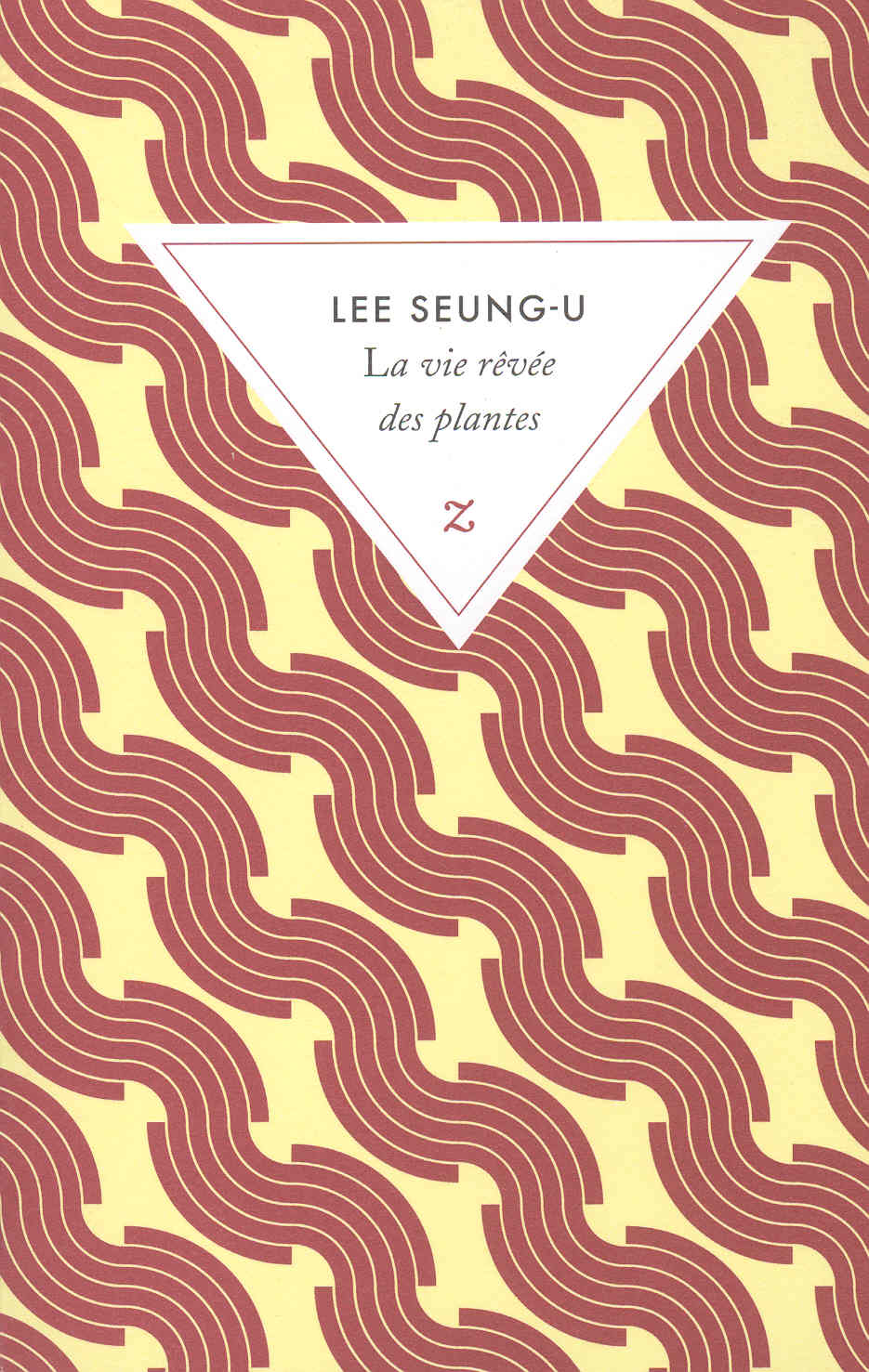
Fiction소설 | 식물들의 사생활(前 한국문학 번역지원사업 지원) La vie rêvée des plantes
저자 이승우 ㅣ 역자 최미경,Jean-Noël Juttet장-노엘 주테
출판사 France프랑스 줄마(Zulma) ㅣ 출판일 (2001 지원)
식물들의 사생활』은 재단의 2001년 한국문학 번역지원을 받아 번역되었는데 재단은 책 출간을 앞둔 지난 6월 중순 작가 이승우와 번역가 최미경의 작품낭독회 및 언론사 인터뷰 등을 파리에서 줄마출판사와 함께 개최한 바 있다. 프랑스의 줄마(Zulma)에서 출간된 이승우의 장편소설 『La Vie Rêvée des Plantes 식물들의 사생활』이 프랑스 언론의 대대적인 찬사 속에 한국 소설로는 유례가 드물게 출간 한 달만에 초판 2천5백부가 매진되는 돌풍을 일으켰다. 프랑스 최대의 판매부수를 자랑하는 일간지 ‘르 피가로 Le Figaro’는 지난 9월 14일자 문화면 머리기사에서 이승우가 “고대신화를 원용하여 영원한 사랑을 주제로 한 아름답고 몽환적인 신화를 만들어냈다”고 찬사를 보낸 뒤 “낭만적인 이미지가 비극과 허무에 대한 도전처럼 사용된다는 점”을 이 소설의 가장 인상적인 점으로 꼽았다. 이승우는 이미 지난 2000년 발간된 대산문학상 수상작 『L'Envers de la Vie 생의 이면』을 통해서 페미나상 외국소설 부문 최종후보작에까지 오르는 호평을 받은 바 있어 프랑스 문단에서 한국소설을 대표하는 브랜드로 자리 잡을 가능성을 엿보게 하고 있다.
La vie rêvée des plantes(The Private Life of Plants)
Lee Sung-U(Author)/ Choi Mikyung, Jean-Noël Juttet(Translators)/France: Zulma
This is a novel by Lee Sung-U, who was a 1st Daesan Literary Awards winner with Another Side of Life in 1993. A young man hires a prostitute for his older brother, who has a deformed leg. Before this, his mother had carried the older boy on her back, taking him back and forth to the red-light district. There is one woman there who is loved by both brothers. The older brother becomes incensed when he feels his brother’s love coming from this woman, and the reason that the pain of the crippled boy is felt more acutely by his mother is that he was her child with an ex-boyfriend whom she’d never forgotten. This work deals with people who love a lot, and love well. -
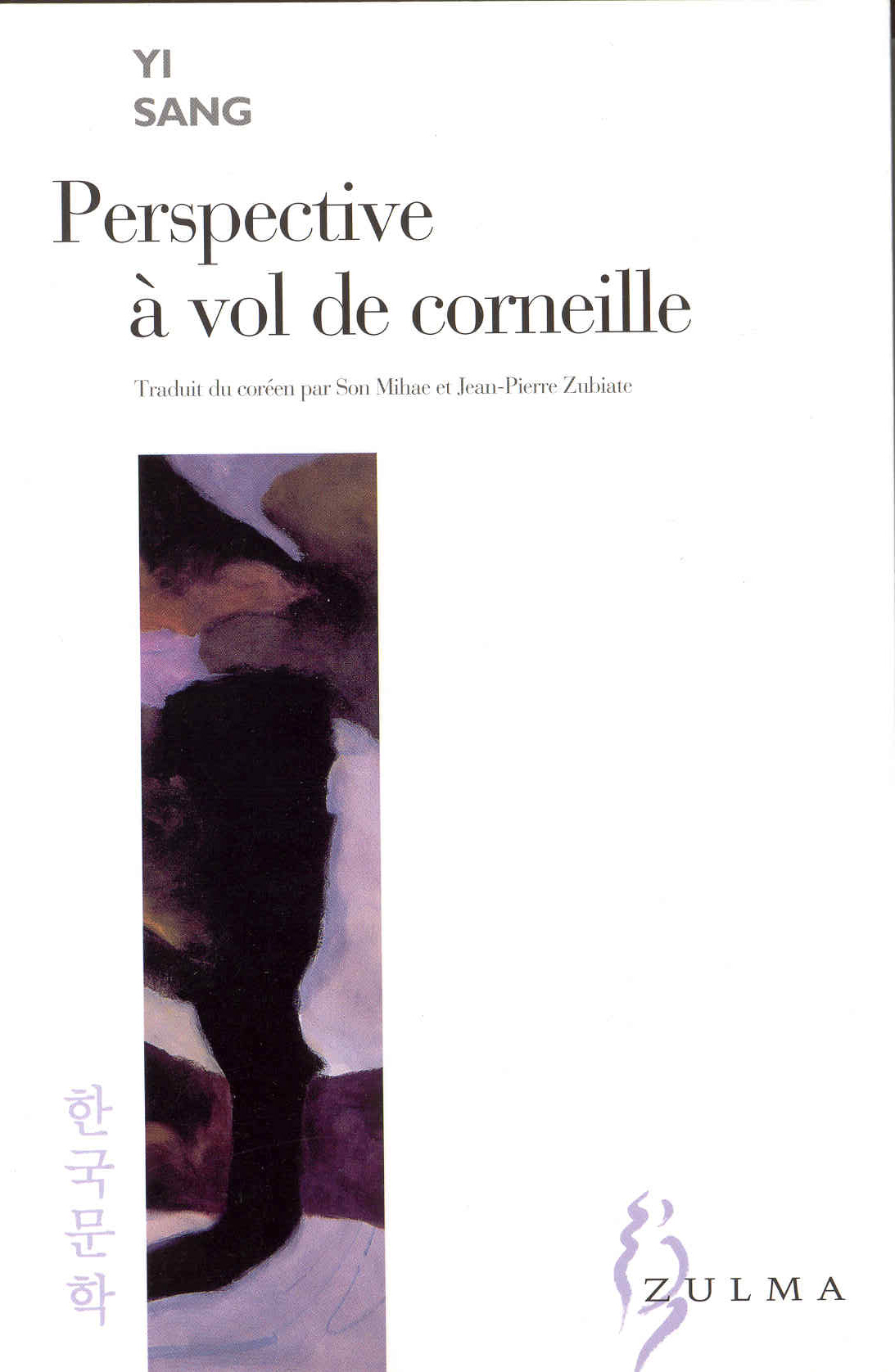
Poetry시 | 오감도(이상 시선집)(前 한국문학 번역지원사업 지원) Perspective à vol de corneille
저자 이상 ㅣ 역자 손미혜,Jean-Pierre Zubiate장-피에르 주비아트
출판사 France프랑스 줄마(Zulma) ㅣ 출판일 2005(2001 지원)
오감도-이상시선집 Perspective a vol de corneille
이상 作/ 손미혜·장 피에르 주비아트 譯/ 프랑스 Zulma 刊
한국 근대문학사가 낳은 불세출의 시인이자 작가인 이상의 시선집이다. 스스로를 “박제가 되어버린 천재”라 불렀거니와, 문학을 통해서 인간 고통의 근원을 끊임없이 발견하려 했던 천재 작가였던 그의 문학은 해외에서도 많은 관심을 받고 있다. 이를 반영하듯 이상의 작품은 여러 언어로 번역, 출판된 바 있고, 줄마에서도 그의 단편집 이후로 두 번째 작품집을 출판했다. 이상의 시세계를 전체적으로 살펴볼 수 있도록 시 전집의 형태로 구성되었다. 2001년 지원.
Perspective à vol de corneille (Selected Poems of Yi Sang)
Yi Sang(Author)/ Son Mi-Hae, Jean-Pierre Zubiate(Translators)/ France: Zulma,2005
Yi sang was an unparalleled poet and writer, born of modern history of Korean literature. Famously calling himself "the stuffed specimen of a genius," he was indeed a strange (yi sang in Korea can mean 'strange')genius forever searching for the source of man's pain and suffering. Launching his literary career in 1931 with A Strange Reversible Reaction, he lived to 26 years and seven months - a life too short and not at all happy. Despite personal circumstances, his works Crow's Eye View, Wings, Spiders And Pigs, Meeting and Parting revolutionized Korean literature. The defining premises of is literature are as follows: grotesque states of distortion and unrest; distortion and / or play of numbers; schizophrenia and excess self-consciousness; and belief in an irrational world. Yi Sang: Collected Poems archives Yi Sang poetry for a full overview on the Yi Sang poetic oeuvre. -
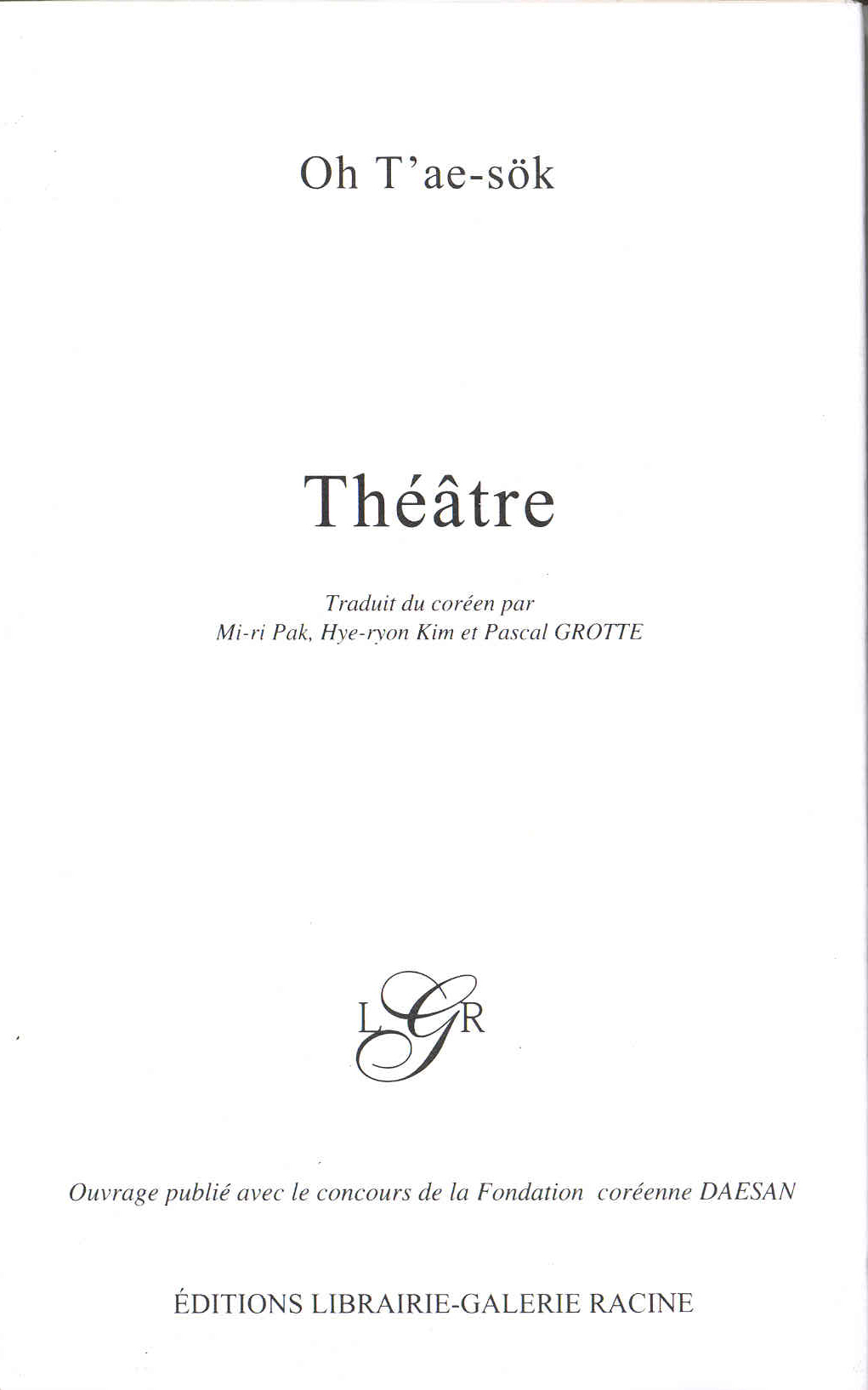
Drama희곡 | 오태석 희곡집(前 한국문학 번역지원사업 지원) Théâtre
저자 오태석 ㅣ 역자 박미리,김혜련,Pascal Grotte파스칼 그로트
출판사 France프랑스 라신(Racine) ㅣ 출판일 2004(2000 지원)
Théâtre(Oh T'ae Sok's Collection of Plays)
Oh Tae-Sok(Author)/Park Mi-Ri, Kim Hye-Ryon, Pascal Grotte(Translators)/France: Racine,2004 By Oh T'ae-Sok, the most illustrious playwright and producer in the contemporary scene, this book is a compilation of his three seminal plays. Lauded as the best work of 20th Century Korea, Life Cord recounts the Joseon Dynasty court-secret tragedy of King Danjong. Intimacy between Father and Son also finds inspiration from the most puzzling of Joseon mysteries: King Yougjo's execution of his own son (aka the death of Crown Prince Sado). The 1993 First Daesan Literary Awards winner of best drama Why Did Shimchong plunge into the Indangsu Twice? tells the story of Shimchong, who once threw herself into the Indangsu. She is reborn into our present world and, experiencing the dark sides of our society, again throws herself back into the indangsu. Compared to the earlier two works, this last is a more allegorical tale.
